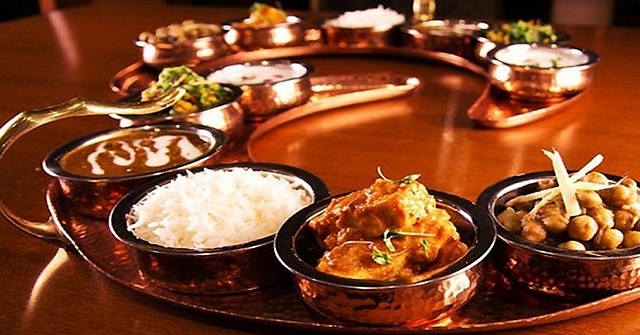
Yeh ‘Soul’ Maange More: An Indic Food Workshop That Focuses On Food Beyond Just Bodily Needs
दीपो भक्षयते ध्वान्तं कज्जलं च प्रसूयते |
यदन्नं भक्षयेन्नित्यं जायते तादृशी प्रजा ||
Lamp eats darkness and produces [black] soot!
What food (quality) [one] eats daily, so will [one] produce.
Vriddha-chanakya (वृद्ध-चाणक्य)
In the Indic Knowledge Systems, food is seen as a purifier of the body and the atmana. The food we eat is linked to our thoughts and action and thereby to our pathway to moksha. Chanakya has likened the burning of light to a good man who eventually would produce soot. The second line of the shloka above indicates that the quality of food is linked to future progeny.
Food intake directly affects the physical and mental health of the body. We define food, grains and vegetables not just based on types and how/where they grow but also on the type of feelings and mental states they create in our body and mind. Thus, we have food categorised as rajasic, tamasic and satvik. Rajasic foods are typically hot, spicy and salty, making the mind tend towards hate, anger and manipulation. Tamasic foods are those which create a feeling of fullness of stomach inducing sleep and depression while Satvik foods are defined as those which are light and easy to digest promoting clarity, austerity and a feeling of contentment.
अहं वैश्वानरो भूत्वा प्राणिनां देहमाश्रित: |
प्राणापानसमायुक्त: पचाम्यन्नं चतुर्विधम् || 14||
It is I who take the form of the fire of digestion in the stomachs of all living beings, and combine with the incoming and outgoing breaths, to digest and assimilate the four kinds of foods.
~ Gita 15:14
Right from ancient times, we recognised the importance of digestion for our mental and physical health. Thus, the Indic Knowledge Systems determined that good diet (ahāra) included the type of food, the person’s thoughts process who prepared the food, the time of consuming the food and the amount of consumption played an important role on our well-being long before the modern triple blind tests came into vogue.
To understand the relevance of our ancient knowledge on diet in these modern times, Indic Academy in association with the Centre For Soft Power is organizing Ahara – a series of workshops on Indian food.
Organisers
The organisers of the workshop are Dr. Rupa Vasudevan, Bharat Lal Meena (B.E.S.T Innovation University ) and Vijayalakshmi Vijayakumar (Heritage Foundation).
Indic Academy, Centre for Soft Power and the World Forum for Education have extended support to the event.
About
Bharatiya Engineering Science and Technology Innovation University (B.E.S.T Innovation University), Andhra Pradesh, and Heritage take great joy in bringing these events to you, specially curated by a team of experts. This exciting new series of workshops will look at exploring and celebrating our tangible and intangible heritage. It will also highlight how our ancient heritage has time tested values to offer to contemporary society.
The JUST INDIC- Think Bharata workshops are an effort to bring forward the best of ancient knowledge systems for the well-being and growth of the individual and community. The workshops will be documented and published in the bi-annual Indic Magazine. The ‘International Innovation and Creativity Conference’ under the World Forum for Education each year will devote one day for The JUST INDIC- Think Bharata workshop.
Registrations
If you wish to register for this workshop, write to us at justindic@bestiu.edu.in or heritage.yukti@gmail.com.
(For more details, click this link, first published by Indic Academy).